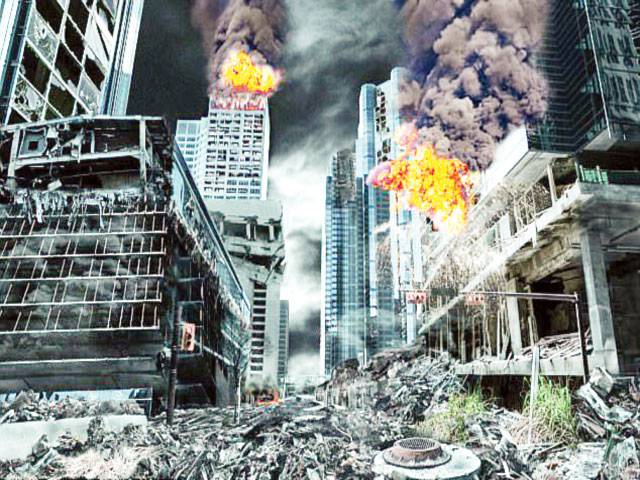LONDON-From Hurricane Irma to the Northern California wildfires, this year has seen its fair share of natural disasters.
These disasters may have you thinking about what you should do in the eventuality one hits your city - how do you prepare and should you think about leaving?
According to an expert, a lot of what drives large-scale evacuations is mass hysteria and fear, and most natural disasters don’t require an immediate evacuation because they can be predicted, for example hurricanes. However, there are certain things city dwellers can do in preparation for a sudden disaster.
John Renne, the Director of the Center for Urban and Environmental Solutions at Florida Atlantic University, told The Week that while people don’t necessarily need to evacuate during disasters, they should be prepared for one.
Firstly, Renne recommends that people should plan on staying in their homes and cities as opposed to fleeing.
This is because there aren’t many situations where you would need to evacuate an entire city. And for some types of disasters, such as chemical attacks, it’s safer to stay indoors rather than leave.
Even during the September 11, 2001 attacks in New York City, only a small part of the city required evacuation. It’s more common to require evacuating only impacted sections of cities rather than entire cities. While people should plan on staying put, Renne’s second piece of advice is to be prepared and ready to leave quickly if you’re in an affected area.
For example, in the case of the northern California wildfires in October, people had to evacuate their homes rapidly as flames quickly engulfed their homes.
In order to prepare for this, it’s recommended that people listen to local new stations for alerts, and keep a track of social media for evacuation plans.
Thirdly, it’s important to have the right kinds of supplies on hand for a disaster situation.
For example, if you plan on staying indoors and waiting out a disaster such as a hurricane, you will need a certain amount of supplies to last you through the event.
It’s often recommended to have enough water and non-perishable food for three days, and to have an emergency kit with a flashlight, batteries, a first aid kit and a solar charger for your phone if there is a power outage.
In addition, if cellular service goes down, a hand-crank generator radio can help you receive emergency alerts.
In a scenario where you do need to evacuate, you should have an already prepared bag with key documents, water, food, medicine, a flashlight, extra batteries, a charger, cash and toiletries.
It’s important not to stock up on more than 20 pounds of food and water, as this can weigh you down.
Fourthly, it’s important to be aware of your surroundings - regardless of whether you’re staying at home or evacuating.
For example, depending on what the emergency is, you may need to know how to switch of your gas, electricity or water in your home.
As such, it’s important to find out how to access these functions in advance.
And if you do have to leave your home, it’s important to plan an escape route with alternatives in case certain exits are blocked off.
It’s also important to know where your nearest evacuation center is in case you need to take shelter there, and to check on elderly, young or disabled neighbors to make sure they’re able to evacuate.
Finally, Renne recommends having a positive attitude and maintain calm, as becoming anxious can become dangerous when facing obstacles.






